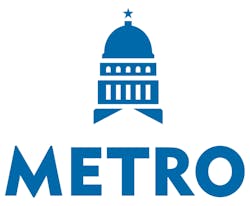Capital Metro and its partners One Voice Central Texas and the Austin Community Foundation on Feb. 3 announced an important milestone in public transportation: the Basic Transportation Needs Fund (BTNF), which provides greater transportation access to low-income, transit dependent individuals, has seen over 1 million boardings since it launched in July 2012.
Since 2012, an independent board composed of representatives from the nonprofit and business community, and Capital Metro, has overseen the work of the fund.
Through the fund, Capital Metro transit passes are distributed to a variety of nonprofit social service agencies to help meet the transportation needs of their clients. To qualify, recipients must be low income and dependent on public transportation.
Populations primarily served by the fund include adults over the age of 65, people with disabilities, youth under the age of 18, Medicare card holders, low income workers, refugees, and people experiencing homelessness. The goal of these passes is to help individuals remain or become more self-sufficient by providing transportation access to employment, health care, education or social services.
Since 2011, Capital Metro has invested $1.2 million into the BTNF. Currently, 27 local social service organizations distribute transit passes from the fund, enabling an average of over 37,000 boardings each month by those in need.
“Capital Metro is committed to offering transportation service to everyone in the community, regardless of income,” said Linda S. Watson, Capital Metro’s president and CEO. “We understand that many members of our community depend on Capital Metro to get to the doctor, to work, to school or to other appointments.”
Often, the lack of affordable and reliable transportation is all that stands in the way of receiving medical care for a chronic condition, getting a GED or finding work. Over one thousand people depend on the fund each month and the program’s success stories are numerous.
Juan R. is just one of the people who has been helped by the BNTF. Following his recuperation from a kidney transplant, it became important for Juan to find work so he could support his 15-year-old son. He was able to ride MetroAccess though the BTNF to a resume refresher course at ARCIL, Inc. so that he could prepare to re-enter the workforce. Last August, he accepted a supervisory position at a local nonprofit.
“I am delighted that everything is turning around,” said Juan. “I would not have been able to do it without the transportation assistance I received.”
Capital Metro plans to continue to provide access to transportation for low-income transit-dependent individuals through the fund.
“There is a never-ending need to expand access to transportation in our region and we encourage interested organizations to apply,” said BTNF Board Chair Amy Temperley, executive director of H.A.N.D.

